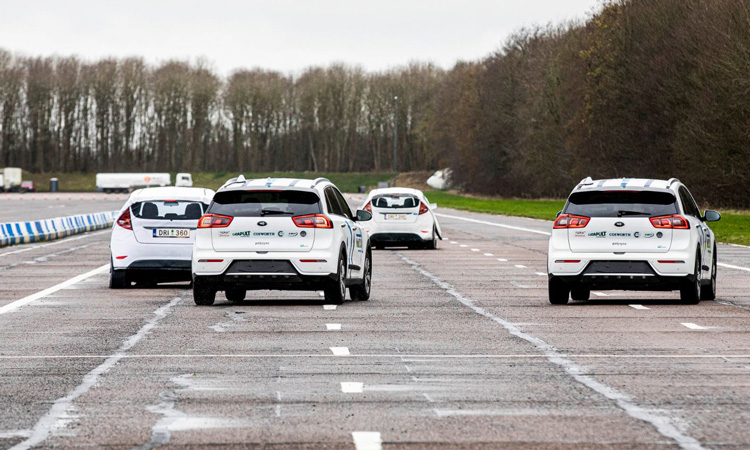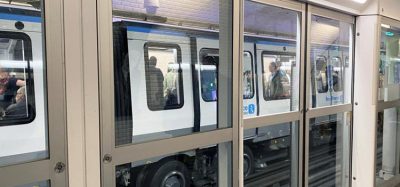Connected vehicle project could ‘end motorway pile-ups’
- Like
- Digg
- Del
- Tumblr
- VKontakte
- Buffer
- Love This
- Odnoklassniki
- Meneame
- Blogger
- Amazon
- Yahoo Mail
- Gmail
- AOL
- Newsvine
- HackerNews
- Evernote
- MySpace
- Mail.ru
- Viadeo
- Line
- Comments
- Yummly
- SMS
- Viber
- Telegram
- Subscribe
- Skype
- Facebook Messenger
- Kakao
- LiveJournal
- Yammer
- Edgar
- Fintel
- Mix
- Instapaper
- Copy Link
Posted: 30 March 2020 | Sam Mehmet (Intelligent Transport)
Around 4,500 accidents still happen on UK motorways each year, contributing to 1,700 annual deaths and over 22,000 serious injuries, and the project aims to reduce these figures through AI autonomous vehicle technology.


Cranfield University researchers have taken part in a project to develop technology that could reportedly radically reduce the number of multi-vehicle collisions on motorways.
The Multi-Car Collision Avoidance (MuCCA) research and development project has used artificial intelligence (AI) and vehicle-to-vehicle (V2V) communications to instruct autonomous vehicles to cooperatively make decisions to avoid potential incidents.
MuCCA equipped vehicles completed replicas of real-life UK motorway scenarios on test tracks, sharing information by radio links when detecting an incident, and calculated the best manoeuvres to avoid the obstacles via the on-board computers, safely steering the agreed path to avoid an accident.
Rachel Maclean MP, Minister of Transport, Department of Transport, said: “The potential of self-driving vehicle technology is unprecedented and could help to level up transport across the nation by making everyday journeys greener, safer, more flexible and more reliable. The MuCCA project is yet further proof of the UK leading the way in the safe and secure development of self-driving vehicle technology.”
Cranfield’s role in the project involved developing the sensor and driving systems of the cars to make them more human-like in their reactions.
Ross Walker, Research Fellow/Engineer in Autonomous Cars in the Signals and Autonomy Group, Centre for Electronic Warfare Information and Cyber at Cranfield, said: “The scope of MuCCA is vital for safe future transportation systems and so we’re thrilled to be part of the project. The University is a pioneer in connected and autonomous vehicle engineering, and we were able to develop computer algorithms that help the cars to react in a more human-like way when avoiding collisions. This can allow any potential accidents to be recognised in advance, and consequently avoided before they have chance to begin developing.”
Icaro Bezerra-Viana, Research Fellow in Autonomous Cars in the Signals and Autonomy Group in the Centre for Electronic Warfare Information and Cyber at Cranfield, said: “Computer simulations enabled us to model how human drivers behave on motorways, and how the proximity of surrounding cars influences their behaviour. The movement of the cars that surround a vehicle over the next few seconds can then be predicted in order to avoid a collision. Being part of the MuCCA consortium and working with partners has enabled us to learn more technically and work together to find the most appropriate solutions.”
The project was funded by Innovate UK and the Centre for Connected and Autonomous Vehicles (CCAV), and delivered by a consortium led by Applus IDIADA with Cranfield University, Westfield Sports Cars, Cosworth, SBD Automotive and Connected Places Catapult.
Related topics
Artificial Intelligence, Connected & Autonomous Vehicles, Intelligent Transport Systems (ITS), Vehicle & Passenger Safety
Related modes
Autonomous vehicles
Related cities
UK
Related organisations
Cranfield University
Related people
Icaro Bezerra-Viana, Rachel Maclean, Ross Walker







